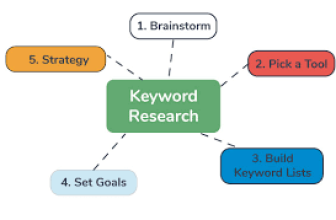
Outline:
Introduction
- Announcement of Ratan Tata’s passing
- Overview of his significance in Indian industry
Early Life and Education
- Birth and family background
- Academic pursuits and early influences
Joining the Tata Group
- Entry into the family business
- Initial roles and responsibilities
Rise to Leadership
- Appointment as Chairman
- Key challenges faced during early tenure
Global Expansion Under His Leadership
- Acquisition of Tetley Tea
- Purchase of Corus Steel
- Acquisition of Jaguar Land Rover
Innovations and Initiatives
- Introduction of Tata Indica
- Launch of Tata Nano
- Expansion into information technology
Philanthropic Endeavors
- Contributions to education
- Healthcare initiatives
- Support for rural development
Personal Life and Interests
- Passion for aviation
- Love for animals
- Personal anecdotes
Legacy and Impact
- Transformation of Tata Group
- Influence on Indian economy
- Mentorship and leadership style
Tributes and Condolences
- Statements from global leaders
- Public reactions
- Memorial services and honors
Conclusion
- Summary of his life and achievements
- Final thoughts on his enduring legacy
Article:
Introduction
The world mourns the loss of Ratan Naval Tata, the esteemed industrialist and former chairman of the Tata Group, who passed away on October 9, 2024, at the age of 86 in Mumbai. His demise marks the end of an era for Indian industry, as he was instrumental in transforming the Tata Group into a global conglomerate and significantly influencing India’s economic landscape.
Early Life and Education
Born on December 28, 1937, in Bombay (now Mumbai), Ratan Tata hailed from a prominent Parsi family. He was the son of Naval Tata, who was adopted by Ratanji Tata, son of Jamsetji Tata, the founder of the Tata Group. Ratan’s early life was marked by the values of discipline and humility instilled by his family. He pursued a degree in architecture from Cornell University and later attended the Advanced Management Program at Harvard Business School in 1975, equipping him with a global perspective that would later define his leadership style.
Joining the Tata Group
In 1962, Ratan Tata joined the Tata Group, beginning his career on the shop floor of Tata Steel in Jamshedpur. This hands-on experience provided him with invaluable insights into the operations and challenges of the industry. His early roles involved various responsibilities, including managing operations and streamlining processes, which laid the foundation for his future leadership within the conglomerate.
Rise to Leadership
Ratan Tata’s ascent to the chairmanship of Tata Sons in 1991 marked a pivotal moment for the group. Taking over from his uncle, J.R.D. Tata, he faced the challenge of modernizing the conglomerate amidst India’s economic liberalization. His initial years were focused on consolidating the diverse companies under the Tata umbrella, emphasizing innovation, and fostering a culture of excellence. Despite skepticism from some quarters, his vision and determination steered the group toward unprecedented growth.
Global Expansion Under His Leadership
Under Ratan Tata’s stewardship, the Tata Group embarked on an ambitious global expansion strategy:
Acquisition of Tetley Tea: In 2000, Tata Tea acquired the UK’s Tetley Tea, making it one of the world’s largest tea companies.
Purchase of Corus Steel: In 2007, Tata Steel acquired the Anglo-Dutch steelmaker Corus, significantly enhancing its global footprint.
Acquisition of Jaguar Land Rover: In 2008, Tata Motors purchased the iconic British automotive brands Jaguar and Land Rover, marking a significant entry into the luxury car market.
These strategic moves not only elevated the Tata Group’s international presence but also showcased Ratan Tata’s visionary approach to business expansion.
Innovations and Initiatives
Ratan Tata was a proponent of innovation and spearheaded several initiatives:
Introduction of Tata Indica: In 1998, Tata Motors launched the Indica, the first passenger car designed and manufactured in India, reflecting the group’s commitment to indigenous development.
Launch of Tata Nano: In 2008, the Tata Nano was introduced as the world’s most affordable car, aiming to make vehicle ownership accessible to the masses. Although it faced challenges, the Nano project demonstrated Tata’s dedication to innovation and social responsibility.
Expansion into Information Technology: Under his leadership, Tata Consultancy Services (TCS) emerged as a global IT services powerhouse, contributing significantly to India’s reputation in the technology sector.
Philanthropic Endeavors
Beyond business, Ratan Tata was deeply committed to philanthropy:
Contributions to Education: He supported numerous educational initiatives, including funding institutions and scholarships, to promote learning and development.
Healthcare Initiatives: Tata was instrumental in establishing healthcare facilities and programs aimed at improving medical access and quality in underserved regions.
Support for Rural Development: He championed projects focused on rural upliftment, emphasizing sustainable development and self-sufficiency.








